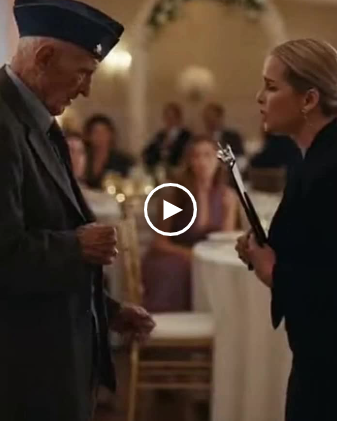
Once upon a time, a woman had a remarkable dream. Excitedly, she turned to her husband and said, “I just had a dream about you giving me the most exquisite diamond necklace. What do you think it means?”
Amused by her enthusiasm, the husband replied with a smile, “You’ll find out tonight.”
Throughout the day, the woman couldn’t help but dwell on her dream. Anticipation grew as she anxiously awaited her husband’s return home.
Finally, the husband arrived with a small package. With an eager smile, the woman unwrapped it, only to find a surprise inside – a book titled “The Meaning of Dreams.”
Defying Stereotypes: The Mighty Senior Citizens
Many people hold the misconception that senior citizens are frail individuals who cannot care for themselves. While they may need occasional assistance, seniors often possess an abundance of experience and wisdom, enabling them to accomplish impressive feats.
Allow us to introduce you to an extraordinary 86-year-old woman who knows how to stand strong. Recently, she encountered a situation with her bank after a bounced check. Her delightful response not only makes us smile but also serves as a reminder never to underestimate old people:
In writing a letter to the bank, the witty woman expressed her gratitude for the bank’s blunder. She humorously calculated that a mere three nanoseconds passed between the plumber presenting the check and the arrival of funds in her account to honor it.
She acknowledged the automatic monthly deposit of her pension, which had been relentlessly reliable for the past eight years. The bank had cleverly seized a small window of opportunity and debited her account $30 as a penalty for their inconvenience.
However, this incident prompted her to reevaluate her financial habits. She noticed the stark contrast between her personal interactions with the bank, where her calls and letters received immediate attention, and their impersonal, overcharging, pre-recorded, faceless entity when she tried to contact them.
From that point on, she declared her choice to exclusively deal with flesh-and-blood individuals. Instead of relying on automatic payments, she would now send checks addressed personally and confidentially to a nominated bank employee, emphasizing the importance of privacy and personalized service.
To ensure fairness, she included an eight-page application form for the chosen bank employee to complete. She requested countersigned copies of their medical history by a Notary Public. Additionally, she required documented proof of their financial situation, including income, debts, assets, and liabilities.
For convenience, she promised to issue her designated employee a PIN number to be used in their interactions. While she couldn’t keep the number shorter than 28 digits, she mentioned how it was inspired by the numerous button presses required to access her account balance through the bank’s phone service.
She humorously added that imitation is the sincerest form of flattery, leveling the playing field. When calling her, she provided a set of instructions: dial, then immediately press the star (*) button for English.
She outlined the corresponding buttons for various scenarios: making an appointment (1), querying a missing payment (2), transferring the call to her living room if she’s there (3), transferring the call to her bedroom if she’s sleeping (4), transferring the call to her toilet during nature breaks (5), or to her mobile phone if she’s not at home (6).
She even included instructions for leaving a message on her computer, which required a password communicated separately. For general complaints or inquiries, the call would be put on hold pending the attention of her automated answering service.
And finally, she playfully reminded the bank, with a touch of humor, that while this may occasionally result in longer waiting times, uplifting music would accompany the call. Yet, following the bank’s example, an establishment fee would be charged for this new arrangement.
In closing, she wished the bank a slightly less prosperous New Year and conveyed a significant message: “Don’t make old people mad. We don’t like being old in the first place, so it doesn’t take much to piss us off.”
As we treasure the stories and wisdom of our senior citizens, let us always remember their strength, resilience, and clever sense of humor.




